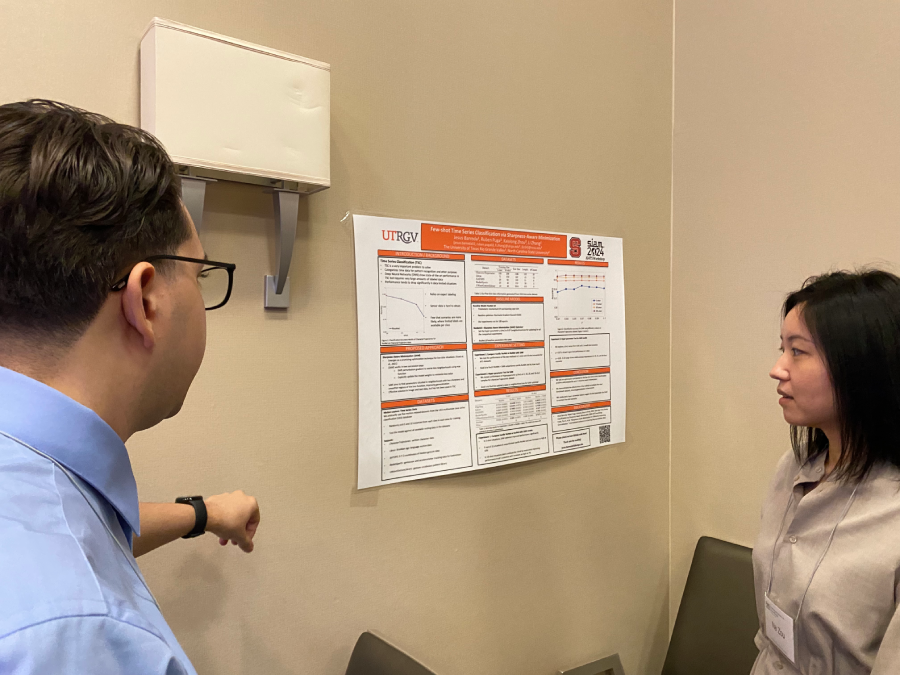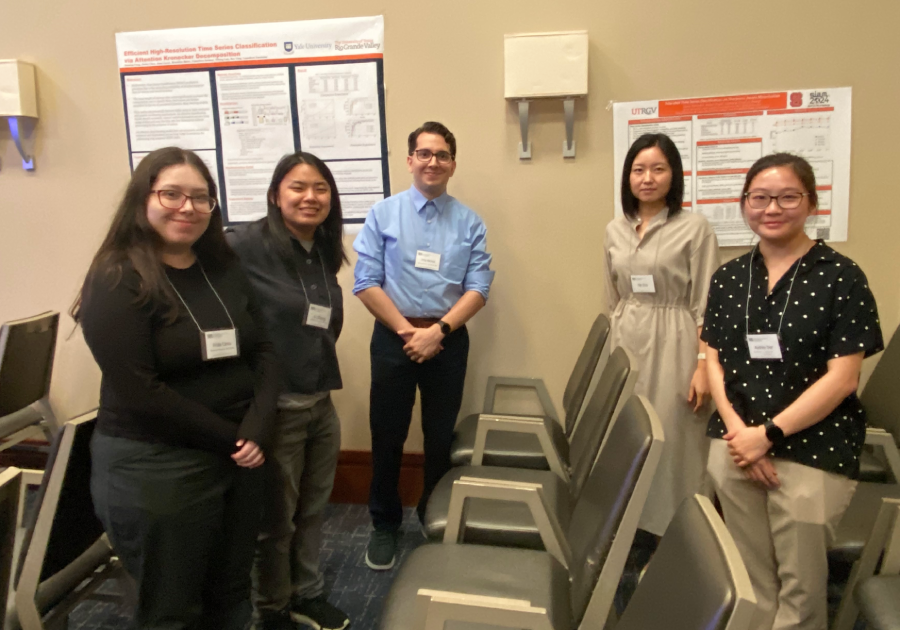Assistant professor of industrial engineering Na Zou, Ph.D., has received $169,982 of a collaborative research award from the National Science Foundation (NSF) Computer and Information Science and Engineering Minority Serving Institution (CISE-MSI) Research Expansion program. Other collaborating institutions on the $600,000 project are North Carolina State University and The University of Texas Rio Grande Valley.
The Research Demonstration Project (RDP), titled Towards Robust and Human-Aligned Deep Learning for Medical-Sensor Time Series, “aims to address the need for reliable deep learning in ubiquitous medical-sensor applications with the goal of technology improvement in healthcare” while “fostering broader participation among undergraduate and graduate students - particularly within the Hispanic community in South Texas - through dedicated research, education, and outreach initiatives.”
“The aging population and rising healthcare costs have highlighted interest in wearable devices, where real-time signal monitoring is crucial in enhancing patient management. Although time-series deep neural networks (DNNs) show promise for advancing healthcare applications in medical sensor monitoring, many current models depend on spurious features that do not align with medical expertise,” said Zou.
“The main goal of this project is to make time-series deep learning models more reliable by systematically addressing spurious correlations leading to output decisions.”
The project consists of three objectives: identifying common patterns and understanding why these can be misleading, developing methods for pinpointing which parts of a model contribute to these misleading patterns and how to correct them, and applying the resulting innovative solutions to two medical applications: monitoring Parkinson’s disease and detecting falls in the elderly.
This research will further yield open-source tools and “potentially benefit a wide range of sensor-based medical monitoring and diagnosis tasks.”
“This work will greatly enhance our understanding of the patterns that cause misleading predictions, improve model generalization for time-series data, and broaden the reliable utilization of these models in critical healthcare applications,” Zou added.
Funding for the project runs through 2027.

